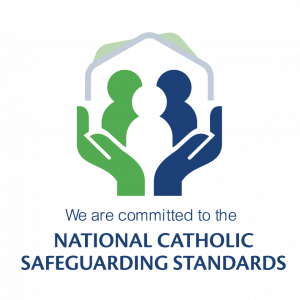Safety and Respect
Catholic Theological College recognises the personal dignity and human rights of all people.
CTC holds the care, safety and wellbeing of children, young people and vulnerable adults as a fundamental responsibility of the Church and its agencies. This commitment is drawn from, and inherent to, the teaching and mission of Jesus Christ, with love, justice and the dignity of each human person at the heart of the Gospel.

What we’re doing about safeguarding
CTC complies fully with the safeguarding policies of the Catholic Archdiocese of Melbourne and the University of Divinity. Safeguarding may be defined as ensuring that vulnerable individuals are protected from abuse, neglect or any form of harm. The college acknowledges that it has a special responsibility and duty of care and respect to vulnerable children, young people, and adults. All staff and students undertake to create a safe environment for vulnerable people.
All CTC members abide by the Code of Conduct of the University of Divinity.
The college is committed to providing a safe and respectful environment that is free from sexual harassment and sexual assault, and supports a proactive approach to preventing incidents of sexual assault or sexual harassment.
Safeguarding unit of study
We offer a unit on safeguarding: Pastoral Leadership for a Safe Church. Click on the unit codes below for more information.
CTC Seminar
In 2020 we co-hosted a seminar on Safeguarding and Seminary Formation, featuring international experts and drawing participants from Australia, New Zealand, and beyond.
Student Support Services
We offer a wide range of student support services.
Reporting safeguarding-related incidents
All safeguarding issues will be handled sensitively and treated seriously.
Reporting to Catholic Theological College
- Dr Catherine Playoust, Deputy Master, is our Safeguarding Contact Officer.
- All reports or questions about safeguarding issues will be handled sensitively and treated seriously.
Reporting to the University of Divinity
- The university’s Complaints Policy established the process by which complaints or allegations of misconduct within the scope of the Code of Conduct and the Conduct and Misconduct Policy are raised, addressed and resolved.
- If it proves necessary, the Complaint Notification Form may be used to submit a complaint to the university’s Fair Treatment and Safeguarding Coordinator.